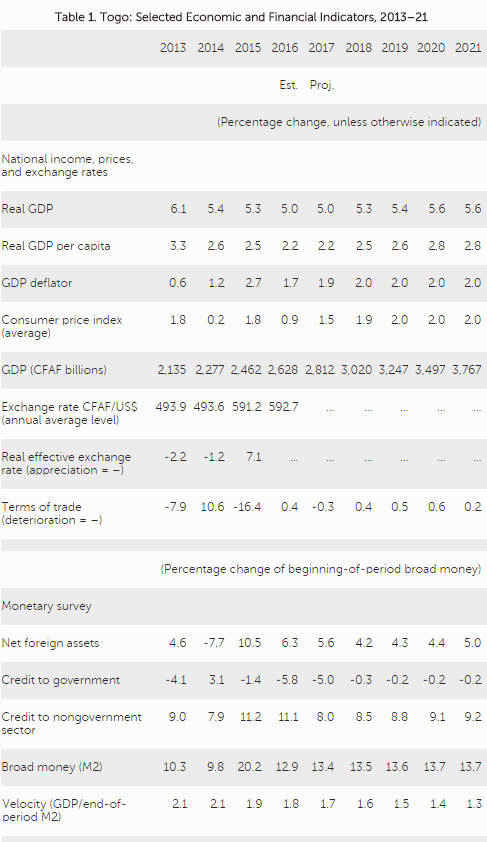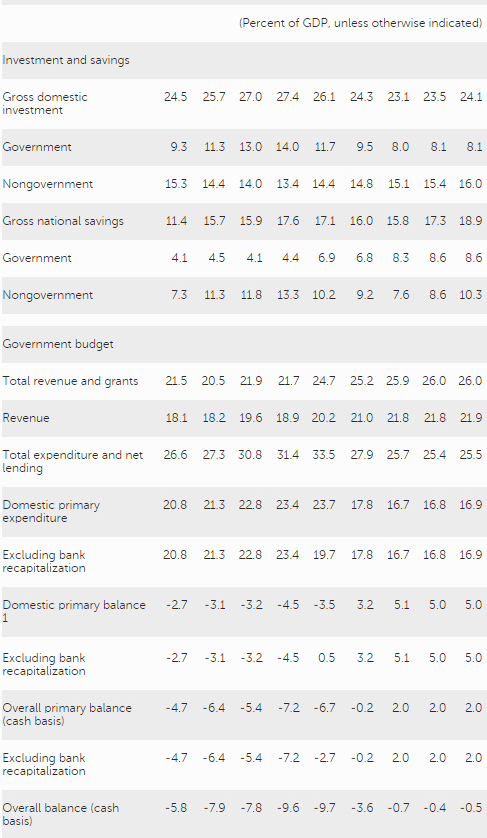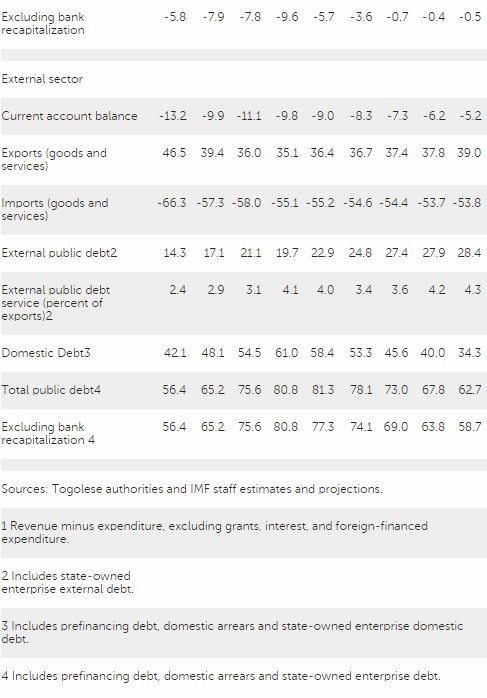IMF Executive Board Concludes 2016 Article IV Consultation with Togo
On May 5, 2017, the Executive Board of the International Monetary Fund (IMF) concluded the Article IV consultation with Togo. The Board also approved a new three-year Extended Credit Facility Arrangement for Togo; a press release on this was issued separately.
The economy has expanded at a healthy rate in recent years. Growth was 5.2 percent in 2014-16 buoyed by infrastructure investments and strong agricultural production. Inflation was well contained, explained by the lower food, energy, and transport prices. Togo’s poverty rate declined from 61.7 percent in 2006 to 55.1 percent in 2015, though it remains geographically concentrated.
The fast pace of public investment has contributed to a pronounced increase in public debt and the current account deficit. Public debt, including prefinancing debt, domestic arrears, and public enterprise debt, increased from 48.6 percent of GDP in 2011 to 80.8 percent in 2016, reflecting public infrastructure investments financed by both domestic and external borrowing. The current account deficit remained high, reaching 9.8 percent of GDP in 2016, largely due to investment-related imports.
Economic growth is expected to increase gradually in the medium term as the fiscal stance is put on a sustainable path. Growth is expected to pick up from 5 percent in 2016 to 5.6 by 2021, with the economy reaping the benefits of an improved transportation network and productivity gains in the agricultural sector. The private sector is expected to play an increasing role as the engine of growth, as public investment returns to its long-term sustainable level. Downside risks to growth include capacity constraints in implementation of structural reforms, resistance to reforms from interest groups, and further slowdown in Togo’s main regional trading partners. With the improvement in the fiscal stance, public debt is expected to be reduced from a projected peak of 81.3 percent of GDP in 2017 to 73 percent by 2019.
Executive Board Assessment
Following the Executive Board discussion on Togo, Deputy Managing Director Mr. Tao Zhang, and Acting Chair, said:
“Togo’s economy has shown solid performance in recent years, with sustained growth and low inflation. The country’s growth performance has been underpinned by high levels of public investment to address significant infrastructure gaps. However, this capital spending has also increased public debt and debt service pressures, crowding out needed social expenditures. At the same time, lingering deficiencies in the financial sector have remained unresolved.
“The new arrangement under the ECF will support the authorities’ efforts towards fiscal consolidation while maintaining space for pro-poor spending. Public financial and debt management will be strengthened and revenue administration bolstered. The two under-capitalized public banks will be consolidated into one healthy institution. Regulation and supervision standards in the microfinance sector will be strengthened.
“The medium-term economic outlook is favorable, with private sector activity benefiting from stronger infrastructure and an improved business climate. However, further progress will hinge on the authorities’ successful implementation of their ambitious macroeconomic program, as well as pursuing broader structural reforms to improve public financial management and address social needs.”



Source: International Monetary Fund
- 324 reads
Human Rights
Fostering a More Humane World: The 28th Eurasian Economic Summi

Conscience, Hope, and Action: Keys to Global Peace and Sustainability

Ringing FOWPAL’s Peace Bell for the World:Nobel Peace Prize Laureates’ Visions and Actions

Protecting the World’s Cultural Diversity for a Sustainable Future

Puppet Show I International Friendship Day 2020

